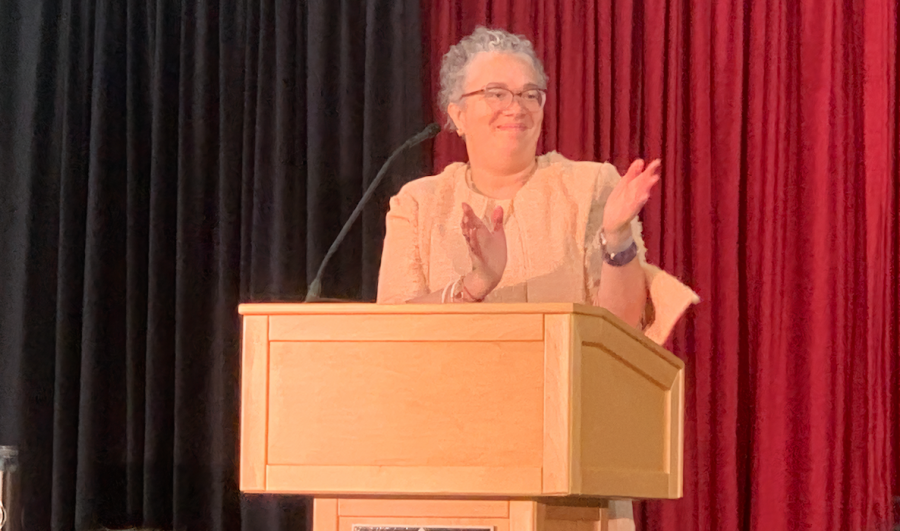Pomona College President speaks to students
Lucas Cohen-d’Arbeloff/Chronicle
Pomona College President G. Gabrielle Starr gestures to a student asking her a question after her speech.
April 21, 2022
Pomona College President and neuroscientist G. Gabrielle Starr spoke to students about education and technology as part of the Brown Family Distinguished Speaker Series during Community Flex Time on Monday. The school selects several speakers for the series each year based on their relevance to the school community and mission statement.
Starr previously served as the dean of New York University’s College of Arts and Science and is currently on the board of the Consortium on Financing Higher Education. She received her doctorate in English and American literature from Harvard University after enrolling as an undergraduate at Emory University at age 15.
In addition to serving as President of Pomona College, Starr is a professor of English and neuroscience. She said teaching virtual classes during the pandemic presented challenges but also offered new opportunities to understand her students’ home lives.
“I taught online for the first time in my life, which was really weird,” Starr said. “But it was a great touchstone for me in my daily life because come what may, there were seven students that I saw every week. I saw into their lives in this really cool way.”
Starr also discussed the drawbacks of online interaction on the brain. She said she does not allow her children to use social media because she has noticed how many young people struggle with in-person interaction.
“The reason I don’t let them have [social media] is [that] all of their friends have been doing nothing but that for at least the last two years, and they don’t know how to have a conversation,” Starr said. “But at some point, they’re all going to have to put [their technology] down.”
Goldie Grube ’23 said she found it helpful to ask Starr a question about how teenagers can improve their relationships with social media.
“I appreciate that we have the opportunity to ask questions to the speakers and talk one-on-one, [which is] beneficial to the whole community,” Grube said. “After I asked a question this past time, a bunch of people came up to me saying they were thinking the same thing.”
Emma Miller ’23, who is interested in pursuing a career in neuroscience, said the interaction between humans and technology is an important issue for the school to spotlight.
“Given how much the pandemic has impacted our use of social media and platforms like Zoom, it’s definitely important to start having conversations about the impact of technology on the brain,” Miller said.



























